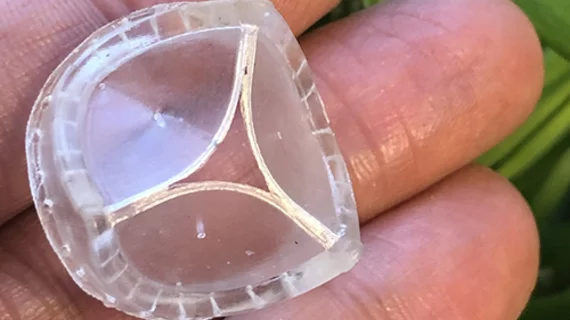New polymer heart valve could be a breakthrough for valve replacement surgery
A new polymer-based artificial heart valve could prove to be a game-changer for valve replacement surgery, giving clinicians an option that lasts up to 25 years and does not require prescribing anticoagulation medications. The new device, PoliValve, is still a work in progress, but a long-term efficacy trial appears to be on the horizon.
The researchers behind PoliValve shared their latest data in Biomaterials Science, noting that it could provide clinicians with a new alternative to traditional biological and mechanical valves. Initial testing with animal subjects is ongoing, the team reported, and funding has already been acquired for long-term in-vivo testing.
“These impressive results show the PoliValve is a promising alternative for valve replacement surgery,” co-corresponding author and co-senior author Geoff D. Moggridge, a professor at the University of Cambridge in the U.K., said in a prepared statement. “While further testing is needed, we think it could make a major difference to the hundreds of thousands of patients who get valve replacement surgery every year.”
“The transformational PoliValve results from an advanced Bristol/Cambridge-based biomedical cross-fertilization between experts in biomaterials, computational modelling, advanced preclinical development/testing and clinical academics understanding the patient needs,” co-corresponding author and co-senior author Raimondo Ascione, head of the structured materials group at Cambridge’s department of chemical engineering and biotechnology, said in the same statement. “The new valve could help millions of people worldwide and we aim to test in patients within the next five years.”
The full analysis from Biomaterials Science can be read here.

